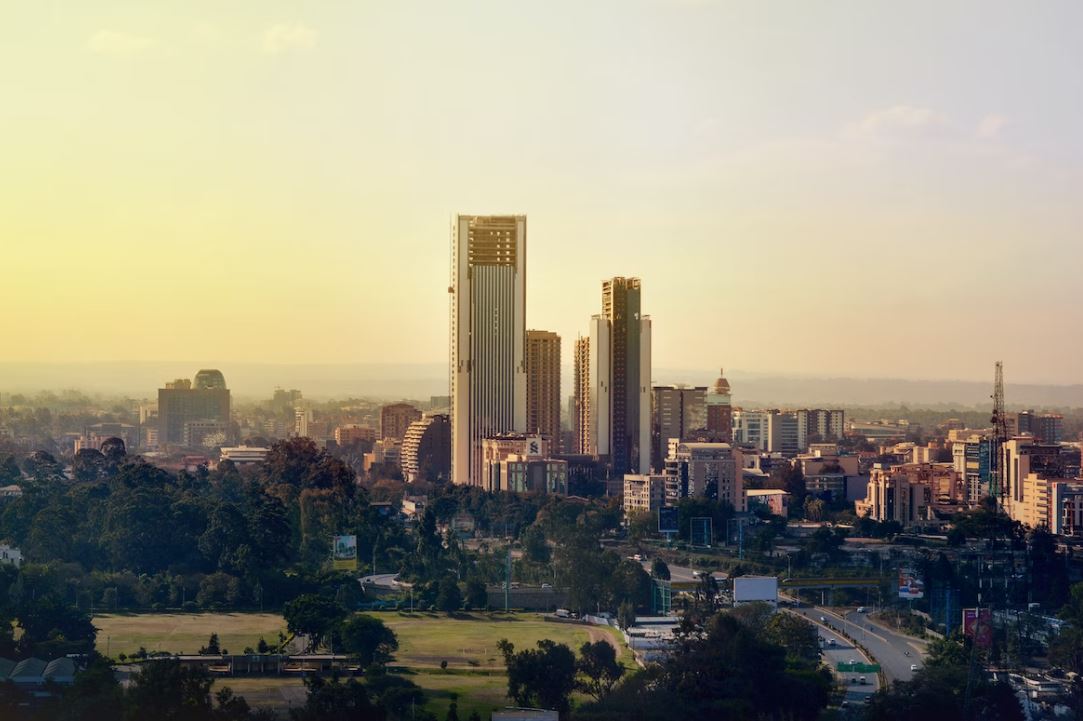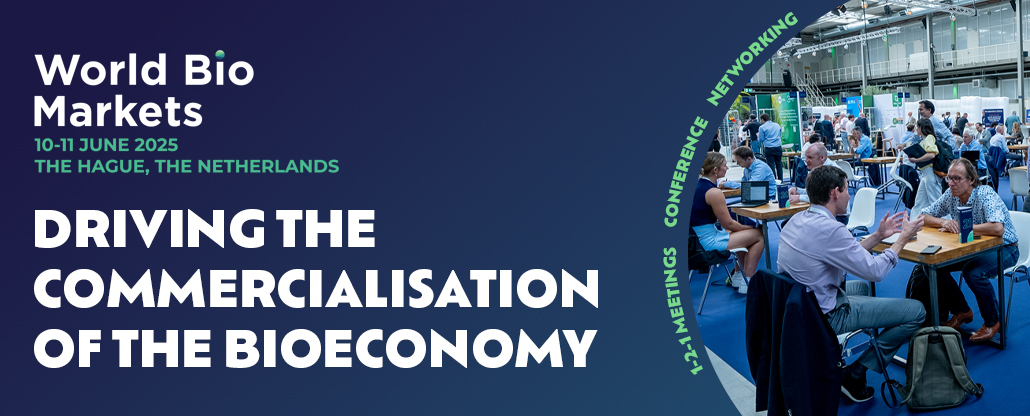Ethiopian entrepreneur Kidus Asfaw is using the plastic waste crisis to address Africa’s affordable housing shortage. His startup Kubik, founded in 2021 and based between Ethiopia and Kenya, saves plastics from landfills and turns them into bricks for easy-assembly houses. The lego-like components fit together without glue or cement, both carbon intensive materials.
The startup hit two sustainability criteria at once: it removes plastic from the environment while also reducing the demand for building cement, one of the most carbon-polluting and heavily used materials in the world. In April 2023, it won the Global Startup Award for startup of the year in Copenhagen, Denmark.
Kubik’ first plan is to supply building materials for construction companies in Ethiopia but eventually they want to sell across the African continent. Supporting these ambitions will be the $3.34 million seed funding they won earlier this year.
Obtaining multi-million dollar funding and a high-profile award in one year is no small feat for a young African business, especially one working on sustainable development issues.
Structural barriers and a fear of the unfamiliar mean young businesses in Africa and Asia are often overlooked by venture capitalists, overwhelmingly concentrated in developed regions. Of the $145 billion in risk capital given out globally just over one percent goes to Africa, a disparity placing a chokehold on a continent that needs to shift towards a sustainable economy.
Africa bears brunt of plastic waste deluge
In Africa, circular initiatives that draw down plastic pollution urgently need capital. For decades, the continent has served as a dumping ground for the plastic waste of developing nations. Many of its cities feature sprawling plastic waste landfills that degrade into toxic particles and smoke.
Scouring these landfills are vast armies of informal waste-pickers, retrieving materials to sell on for a pittance. Although nameless and unrecorded in the registers of the formal economy, globally these workers are likely responsible for finding 60% of plastics that go onto be recycled. Without the dangerous, ill-paid labour they carry out, multinational companies would struggle to meet their circular targets.
Asfaw, aware his circular business would not exist without these marginalised populations, wanted to fairly recompense them. Right now, the waste-pickers sell to middlemen who buy low and sell high on the market. Kubik takes the waste at the market rate.
Kubik makes tackling the public health, economic, and environmental crisis the key metrics of success. Kubik’s mission is to mainstream its technique for transforming waste into building blocks, something he says does not require his company to expand endlessly overseas.
Right now, Kubik makes and sells ready-manufactured plastic waste bricks to real estate developers. By dealing face to face with the real estate industry, the company is trying to understand the concrete mechanics of the construction supply chain.
Once Kubik enters the sub-Saharan African market, Asfaw wants building manufacturers around the world to use his company’s patented waste-trasnforming techniques themselves and scale in their own local markets. This would position the company as first and foremost a technology company, which develops and refines recycling technologies for the building sector. It would also mean that the environmental impacts of the technology could export abroad and scale more efficiently.
Kenya’s circular plastics startups
Ethiopia is not the only country in East Africa where private sector circular plastics initiatives are growing.
South of the border in Kenya, three startups based in the capital Mombasa won a total of $50, 000 from a competition run by USAID and Global Affairs Canada at the Mombasa PLastics Prize Awards: Twende Green Ecocycle in first place and Oceania Pacesetter and Team Eco-Redempters in second and third.
The winner Twende Green Ecocycle upcycles marine plastic waste from informal settlements into school desks. It was founded by a 22 year old environmental engineer Mercy Mwangi who wanted to see solutions for the plastic pollution along Kenya’s coast.
If Kubik has focused on tackling Africa’s urban waste mountains, Twende Green Ecocycle is engaging with another no less dangerous dimension of the continent’s plastic waste crisis. Plastic pollutants in water super-accumulate bacterial growth and accelerate the spread of illnesses, posing acute public health dangers on a continent that is still disproportionately affected by infectious diseases like malaria.
Kenyan green enterprises are also making their mark on the continent’s sustainable business scene. At the first ever Afri-plastics Summit and Awards on 17 March 2023, five Kenyan startups won from a scaling financing pool of $2.1 million. Baus Taka was one of these, a mobile app platform that gives monetary incentives to members of the public that sort their used plastic for collection and transport for recycling by the company.
Petrochemicals push back
However ingeniously African startups repurpose dumped plastic waste, their activities will still not address the immense movement of plastic waste entering Africa in the first place.
Luckily, the dynamism of Kenya’s plastics recycling startup scene mirrors the seriousness with which the government is addressing the root causes of the waste crisis. Since 2017, Kenya has banned the use, manufacture, and import of all plastic bags used for commercial and household packaging.
Although Kenya’s plastic ban should be a gold standard for the rest of the world, the US petrochemical lobby is hard at work trying to pressure the country to backtrack. In 2021, the US and Kenya began talks on a bilateral trade pact which Greenpeace Africa portrayed as a trojan horse aimed at undermining Kenya’s stellar plastic regulations.
These fears were based on findings by Greenpeace investigative journalism. A letter they obtained from the American Chemistry Council, which lobbies for the fossil fuel and petrochemical industry, wanted to export plastics to Kenya and turn it into a sort of distribution hub for the rest of Africa. The ACC also expressed a desire to greenwash their activities by supporting recycling programmes in the country.
These plans were in direct opposition to Kenyan law, which drastically limits the import, use or creation of plastic in the country.
Trade talks were a perfect way for petrochemical interests to weaken Kenya’s anti-plastics regulation. Free trade agreements have dispute settlement provisions that lobbyists can target. If a country imposes import restrictions, the companies and their lobbies can claim it violates free trade principles and take their grievance all the way up to the World Trade Organisation.
Africa’s capital shortfall
This threat to Kenya’s plastic laws from international fossil fuel interests mirrors a more fundamental problem: the power asymmetry between developed and developing countries means the latter cannot trade and invest in private sector sustainability on their own terms.
Access to funding usually depends on having informal ties to the Western venture capital community. Kida Asfaw was better placed in this respect than most African business owners, having previously worked for Google, the World Bank, and Unicef after studying in the United States. Yet despite this impressive CV, Asfaw himself as spoken out on the difficulties he encountered in gaining the trust of investors.
Slowly, venture capital funds are growing in Africa. Kenyan growth topped the list at 33% year-on-year growth, with clean tech driving much of this. Still, African businesses still depend heavily on foreign investment.
Dario Giuliani, founder and director of Briter Bridges, argues Africa needs more of its own debt capital financiers (as opposed to equity-funded capital). At the moment, lack of debt capital providers in Africa limits ventures’ access to large expansions or mergers. Many African green ventures need 3 to 5 times as much debt capital as equity because of the immense gaps in infrastructure and hardware they have to build from scratch or procure.
With the world now gripped by worsening climate effects, climate capital for developing countries is now a burning issue. The world cannot decarbonise without the developing nations – those with least access to credit – and in June 2023, the Future of Finance Summit put global south climate financing at the head of the diplomatic agenda.
During the summit, developing nations demanded overhauls of the international banking system so that poor nations who have contributed least to emissions can escape sovereign debt traps and finally meet their climate mitigation and adaptation needs.
One of the key issues to emerge from the landmark summit was the mobilisation of private capital. World Bank Group President Ajay Banga noted that his and other international institutions have for years failed to drive meaningful private investment into emerging markets.
Africa is still largely passed over by international banks and venture capital yet east Africa’s burgeoning circular startups, backed in Kenya by remarkably stringent anti-plastics legislation, are already showing promise. Yet in a context of stark funding disparities, the success of startups like Kubik implies many other African enterprises are falling through the cracks. Until emerging markets are taken more seriously by the international community, the global transition to a greener economy will suffer.






